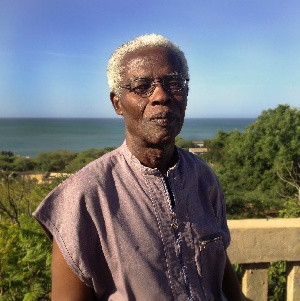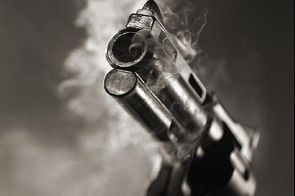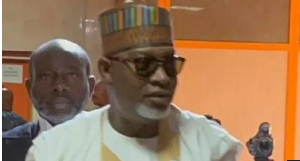Opinions of Tuesday, 9 August 2016
Columnist: Kwarteng, Francis
Ayi Kwei Armah’s Chichidodo bird is a deadly political animal - (1)
“There are two things over which you have complete control, and authority—your mind and your mouth” (Molefi Kete Asante).
“People educate each other through the mediation of the world” (Paulo Freire).
The Chichidodo bird is a Machiavellian political animal
Dodo…what a bird?
They say it is extinct.
They say it means sluggard.
They say the postcolonial…neocolonial political…mindset of African political leadership is as dead as a dodo.
Dodo, an exotic idea that somehow betrays an imaginative air of onomatopoeic curiosity, also gives a false-positive sense of actionable proclivity as a bold statement of tireless, focused industry in the execution of physical and psychological mandates, of personal and collective imperatives, as in a double “do,” do-do!
Only in George Orwell’s Animal Farm, far away in the Orwellian deep caldron of Mauritius.
What is dodo doing in Ayi Kwei Armah’s chichidodo? Chi-Chi-dodo? Who or what is the true nature of Armah’s chichidodo?
“In consequence, contemporary Africa is like the chichidodo bird. She hates excrement with all its soul. But the chichidodo only feeds on maggots, and you know the maggots grow best inside the lavatory.”
Says whom?
Actually says South African philosopher Mogobe B. Ramose in the paper “But the Chichidodo Feeds on Cocoa.”
And chichi?
Doctrinaire ostentation, flashiness, exaggerated pretentiousness…chic!
A maggot-eating bird that is also chic, flashy, dapper…stylishly stupendous! And flightless…and extinct!
And the chichidodo survives on maggots which grow best in the lavatory, Ghana?
The chichidodo is therefore a Hellerian Catch-22; a metaphor of confusion sitting paradoxical time-bomb of ironic hypocrisies…a wolf in sheep’s clothing…a ghost in human flesh…a doppelganger!
Very much like the apocalyptic Aryan prophet Adolf Hitler being in a romantic, even conjugal, relationship with an Eva Braun…a cyanide-drinking Eva Anna Paula Hitler at the moment of defeat.
Oh yes, the chichidodo bird is an internecine amalgam, a mongrel of sainthood and devilry…an Orwellian killjoy of sorts.
The euthanasic chichidodo gives birth to “the beautyful ones are not yet born” and then “she,” to borrow Ramose’s phraseology, the same one goes about suffocating them to Orwellian deaths.
All because the political maggots who grow best in the foul-smelling lavatory of the Orwellian Animal Farm, will not allow “the beautyful ones are not yet born” breathing space to grow without the patronizing intrusiveness of moral corruption, namely to mature morally, to grow spiritually, to grow intelligently, to become a motive engine of conscionable and patriotic men and women not of mechanistic choice, not of thoughtless happenstance, but of decisive necessity.
The chichidodo is no doubt a natural antithesis of George Orwell’s summary assessment of Mahatma Gandhi:
“Saints should always be judged guilty until they are proved innocent…Sainthood is also a thing that human beings must avoid…the average human being is a failed saint.”
The chichidodo is a saintly devil, a failed saint…call it a failed state in progress if you like…a fallen angel.
A failed state of political maggots who grow best in a stinking lavatory of moral excrement.
To Armah’s flightless chichidodo therefore, the sky is not the limit as some are wont to say.
Rather, the sky is the floor!
Apparently the same floor where the stinking maggot-infested lavatory of moral excrement sits. And sits confidently and majestically here she does, we dare say.
Even so the ever-sleeping (unconscious), empty heads of political maggots are not strangers to the entire floor of the stinking lavatory of maggot-infested political geography, littered with poisonous human waste product.
Human waste product has always served as useful and timely pillows for these feces-carrying beetles we call political heads.
The political maggots have made her completely blind, almost incapable of patriotic and meritocratic thoughtfulness.
The political maggots love to sing their national anthem, Paul Simon’s “One Man’s Ceiling is Another Man’s Floor,” whereby they essentially see their political philosophy and concepts of national development in terms of “another man’s floor,” that of the white man, that of the Asian!
The metaphor of the flightless chichidodo bird therefore enjoys a practical aesthetics of literal boldness in the lavatory of moral excrement.
Yet the dodo part of chichidodo bird is extinct, dead!
Yet the chichidodo hates excrement with passion though it still goes ahead to feed on maggots that grow best in the lavatory, anyway.
And here is a captivating dialogue between Dodo and chichidodo, a national introspective of sorts, of the radical nature of national soul-searching:
Dodo: Why am I still part of your being?”
Chichidodo Bird: “Because that part of me is extinct, dead?”
Dodo: “Is that why the soul of your maggot-infested lavatory is dead?”
Chichidodo Bird: “Maggot-infested lavatory, you mean my country?”
Dodo: “Exactly! What were you thinking?”
Chichidodo Bird: “The national psyche!”
Dodo: “Is the national psyche not synonymous or conterminous with the philosophical idea of the nation-state, your foul-smelling lavatory of maggots in this case…the nation-state, an invention of the white man?”
Chichidodo Bird: “Sure!”
Dodo: “That is why you stink so badly, so repulsively. I feel nauseous. I feel terrible. I feel like throwing…I can’t stand the euthanasic stench of national betrayal of which you unabashedly represent!”
The chichidodo bird is wrapped up in stinking maggot-infested royal regalia, at least so she thinks. It is not for nothing that her maggot-infested lavatory smells so bad.
But there is “too much wickedness in the ghetto…too much crying in the ghetto…I don’t like see the coffin,” sings Culture on the track “Wickedness,” an existential metaphor for the chichidodo bird’s maggot-infested lavatory of devious politics, the same concept which controversial late rapper Tupac Shakur raises on the track:
“I Wonder If Heaven Got A Ghetto!”
In the end the chichidodo bird shares this view of Eric Michael Dyson:
“…As a result of this stance, many rappers recognize that the difference between saints and sinners is effort, not achievement, and that explains why they often seem fixated in their raps on doing the right thing.”
What have George Orwell and Mahatma Gandhi got to say about this? Let us just add that, unlike Gandhi and Orwell, the chichidodo bird is a strange universe onto herself, a devil philosophy of sorts. “For we no want no devil philosophy,” sang Bob Marley, an idea the masses should no doubt share in.
For whatever reason(s) the masses, regrettably, exercise no authority and control over their mouths and minds. Apparently their minds and mouths belong to someone else, the chichidodo bird’s self-serving orchestrated kleptomania and cronyism and nepotism and bystander apathy and partisan politics and finally, her repulsively bad leadership.
Say what?
Molefi Kete Asante’s “Rooming in The Master’s House” could not have stated the case clearer, so poignantly!
Even so a classic work such as “Rooming in the Master’s House” belongs to a larger vision, an extensive pointillism of intellectual revolution which, includes, but not limited to, a large body of influential works spanning those of Ama Mazama, Kofi Kissi Dompere, Molefi Kete Asante, Kwame Nkrumah, Toni Morrison, Chinua Achebe, Cheikh Anta Diop, Ama Ata Aidoo, Wole Soyinka, Abdias do Nascimento, Ngugi wa Thiong’o, Nurrudin Farah, W.E.B. Du Bois, Calestous Juma, and Theophile Obenga.
These works are meant to shape the thinking of humanity in general as well as to inform race-ethnic relations in particular, with the latter’s stupendous social-economic and political implications for improving the African world and for refashioning a new world order for the global African community. This view is not merely academic but one borne out of a radical system of pragmatic considerations. Kofi Kissi Dompere’s vast body of work provides useful scientific insights into the marriage between the purely academic and the purely pragmatic.
However, for the masses to exercise total control and authority over their minds and mouths means that the subjects of the chichidodo bird should take it upon themselves to pursue a radical revolution in the critical mechanics of the popular mind, of thinking generally, namely a radical revolutionizing of the minds of the masses aimed at a near-universal destination of critical consciousness.
Critical pedagogy, Afrocentric or African-centered education, linked learning (career and technical education), and scientific-technological reorienting of the African mind are critical to the success of a radical revolutionizing of the popular mind. The Freirean scholar Richard Shaull sheds light on the kind of educational philosophy we have in mind:
“There is no such thing as a neutral educational process. Education either functions as an instrument that is used to facilitate the integration of the younger generation into the logic of the present system and bring about conformity to it, or it becomes "the practice of freedom," the means by which men and women deal critically and creatively with reality and discover how to participate in the transformation of their world. The development of an educational methodology that facilitates this process will inevitably lead to tension and conflict within our society.”
This is not what the chichidodo bird has in mind. She thinks she is more endowed with innate intellectual resources than the human beings she presides over. As a result, she has purposefully kept the standard of education abysmally low just so her presiding authority over the body politic does not come under any form of popular attack from well-informed citizens. This is expected.
Further, her contribution to the corruption of the popular mind is enormous indeed and the approach has proved almost successful in de-civilizing her subjects. We clearly see how her human subjects are uncritical and hopelessly sycophant when it comes to matters of national interest and political discourse.
They have no use whatsoever for what Chimamanda Ngozi Adichie critically calls “The Danger of A Single Story” when it comes to national politics. Chimamanda’s critical commentary notwithstanding, patriotic meritocracy and selfless devotion to the national enterprise, call it nation-building, if you will, remain a far cry from what should have been a critical popular mind.
Even the clerics are not immune from this excruciating pandemia of thoughtless sycophancy, their having rather become more habituated to the stench of political partisanship than being apologetically defensive of the God they claim to worship and as well, represent in this mundane life. They have thrown liberation theology and soteriology and theodicy to the dogs while overindulging in or binging on a theology of lies, political theology and Muscular Christianity.
Add rampant corruption in the bureaucracy and the fact that her human subjects do not read, not to talk of their reading critically, to the mix and the net result is a simmering implosion in the public order. The threshold for volcanic eruption is asymptotically achievable if the right things are not done.
Yet, insofar as the philosophy of education is concerned, Ama Mazama, Molefi Kete Asante, Kofi Kissi Dompere, Cheikh Anta Diop, Howard Gardner, Jonathan Kozol, Paulo Freire and several others have given us more than adequate theoretical and pragmatic pointers to proceed toward a revolutionary radicalizing of the kind of colonial and neocolonial education the chichidodo bird has put in place.
The ball is now in the chichidodo bird’s court. That said, the masses may resort to coercive instruments such as “force” and “war” to bring about the change the hope for in their society. Even she, the chichidodo bird, agrees with President Barack Obama (see his Nobel Peace Prize Speech) that sometimes it takes force and war to bring about the required change humans desire:
“To say that force is sometimes necessary is not a call to cynicism—it is a recognition of history; the imperfections of man and the limits of reason.
“There will be times when nations—acting individually or in concert—will find the use of force not only necessary but morally justified…
“We can acknowledge that oppression will always be with us, and still strive for justice. We can admit the intractability of depravation, and still strive for dignity. We can understand that there will be war, and still strive for peace. We can do that—for that is the story of human progress; that is the hope of all the world; and at this moment of challenge, that must be our work here on Earth…”
Conclusion
Application of the kind of “force” we have in mind must surely be a popular one, as it is originating from or rooted in the depths of consensus, the latter itself based on a paradigmatic set of anthropogenic-based likeminded variables, which, in turn, arise out of a popular impetus for social and moral agitation in the body politic, once again, the latter itself accruing from a model of ideological solidarity.
These propositions may require a Popperian “open society” as in democratic practice. Alas, the masses are merely a means to democratic practice and not an end in itself as some will have us believe. Democracy as an institutional praxis is the exclusive property of a privileged calculating few, who merely use the masses as a plank towards realizing its political and socioeconomic objectives.
In other words, the masses are merely used by the powers that be to get to that dubious destination of democratic practice.
Yet democracy is purely academic and rightly so, because in many, perhaps if not most, situations it lacks the internal logic of self-censure or an impetus for pragmatic mechanics of internal reorganization aimed at ridding democracy of its imperfections, all these mostly due to human limitations.
Open societies are therefore closed to the masses in many a situation, to the exclusive benefit of the privileged few. The mindset of the chichidodo bird is a closed sphere on this account. The humanoid avian chichidodo, thus, comes across as a trope of a deceptive grotesque caricature, of human travesty.
This is why “force” and “war” are called for in the body politic of the chichidodo bird if she continues to insist on retaining her closed-sphere mindset no matter popular agitation for revolutionary change in the status quo. We need an Afrocentric re-orientation of the popular mind!
“It takes a revolution to make a solution,” sang Bob Marley.
We shall return with Part 2.
References
For Molefi Kete Asante quote, see Iyanla Vanzant’s “Acts of Faith: Daily Meditations for People for Color.”
Ayi Kwei Armah. “The Beautyful Ones Are Not Yet Born.” Heinemann, UK: 1968/1969.
Mogobe B. Ramose. (1999). “But the Chichidodo Feeds on Cocoa.” Journal on African Philosophy, p. 1533-1067.
Eric Michael Dyson. “When Gangstas Grapple With Evil.” March 30, 1997. The New York Times.
For Richard Shaull quote, see hid Forward in Paulo Freire’s book “Pedagogy of the Oppressed.” Retrieved from http://www.historyisaweapon.com/defcon2/pedagogy/pedagogyforeword.html













